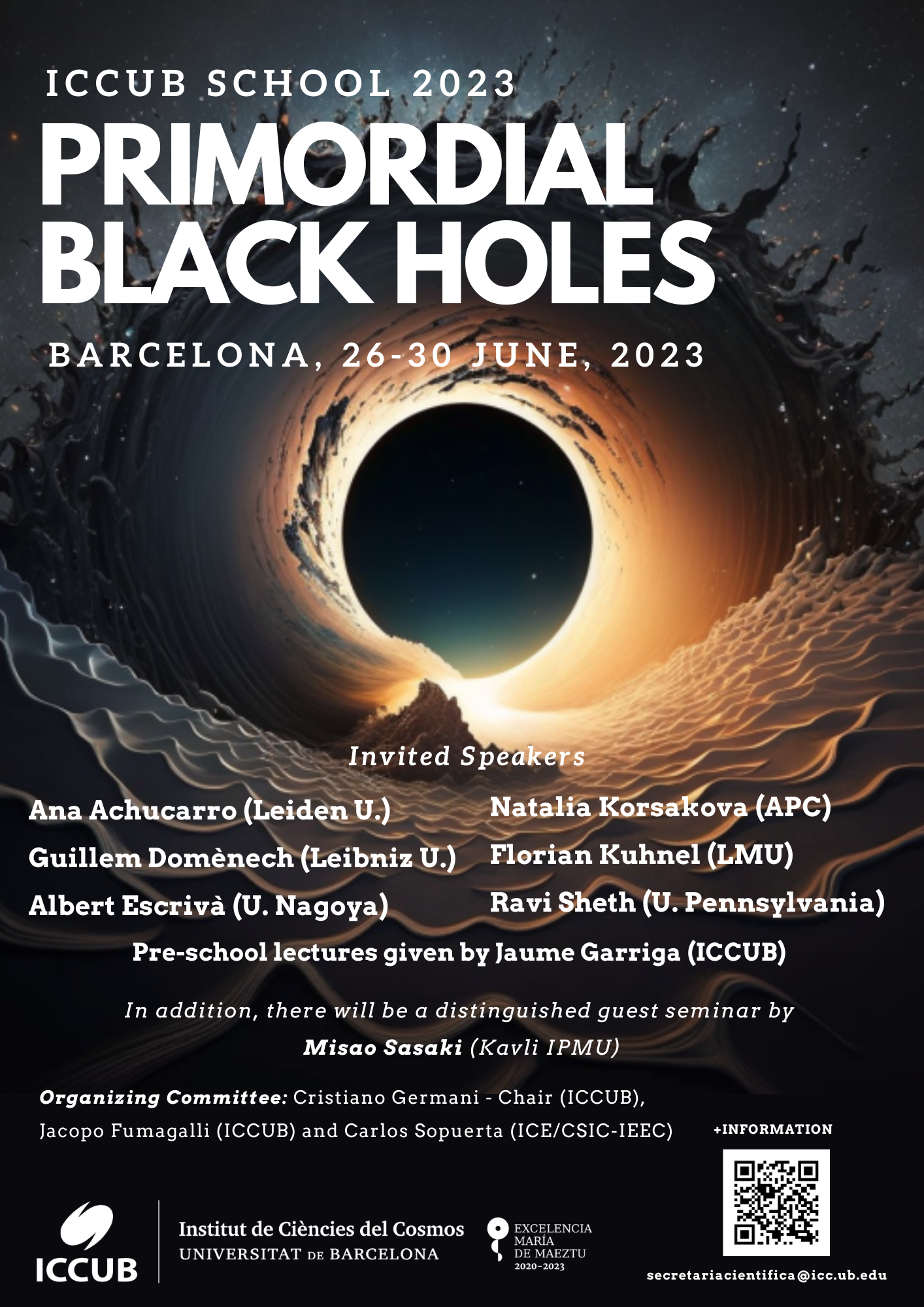ICCUB School 2023: Primordial Black Holes
UB Physics Faculty

ICCUB School
Primordial Black Holes (PBHs), arguably the most economical candidates for Dark Matter, have recently fostered an intense debate within the scientific community. As a result of that, in recent years, there has been a better understanding of their formation, abundance, and signatures.
The aim of the school is to bring together latest key developments on PBHs into a pedagogical and coherent picture. The focus of the school is on PBHs generated from rare inflationary perturbations.
Their formation, statistical distribution and signatures are going to be core topics of the school.
This school is intended for PhD students and young postdocs that have general knowledge of cosmological perturbations theory. Nevertheless, we also provide a pre-school lecture on basics concepts of perturbations theory.
Lectures start every morning at 9:30 and finish at 18:00 (with small variations). Finally, there is also a scheduled time for selected talks from the students.
Limited number of places.
Lecturers
- Ana Achucarro (Leiden University, Netherlands)
"Enhancement mechanisms for cosmological perturbations"
- Guillem Domènech (Leibniz University, Germany)
“Gravitational waves signatures of primordial black holes”
- Albert Escrivà (Nagoya University, Japan)
"Primordial Black Holes formation, theory and simulations"
- Natalia Korsakova (APC, France)
“LISA capabilities in the context of PBH physics”
- Florian Kuhnel (Ludwig-Maximilians-Universitaet, Germany)
"Constraints on Primordial Black Holes"
- Ravi Sheth (University of Pennsylvania, USA)
"The statistics of Primordial Black Holes"
Pre-school
- Jaume Garriga (University of Barcelona and ICCUB)
“Basics of cosmological perturbation theory”
In addition, there will be a distinguished guest seminar:
Misao Sasaki (Kavli Institute for the Physics and Mathematics of the Universe, Japan)
“PBHs from highly non-Gaussian tails of the probability distribution”
When
26th-30th June, 2023 from 9:30Am to 6:30PM
Scientific Organizing Committee
- Jacopo Fumagalli (Universitat de Barcelona and ICCUB)
- Cristiano Germani (Universitat de Barcelona and ICCUB) - Chair
- Carlos Sopuerta (ICE-CSIC/IEEC)
Local Organizing Committee
- Anna Argudo (ICCUB)
- Esther Pallarés (ICCUB)

Acknowledgements
This event is part of the grant, Institut de Ciències del Cosmos, CEX2019-000918-M funded by MCIN/AEI/10.13039/501100011033.
This event is part of the grant Spanish Contribution to LISA: Instrument Development and Scientific Exploitation, PID2019-106515GB-I00, funded by MCIN/AEI/10.13039/501100011033.

